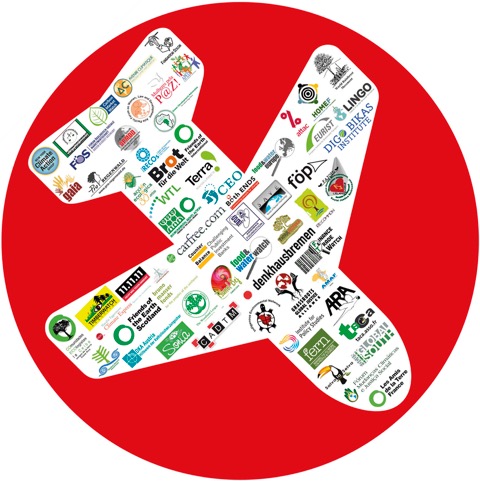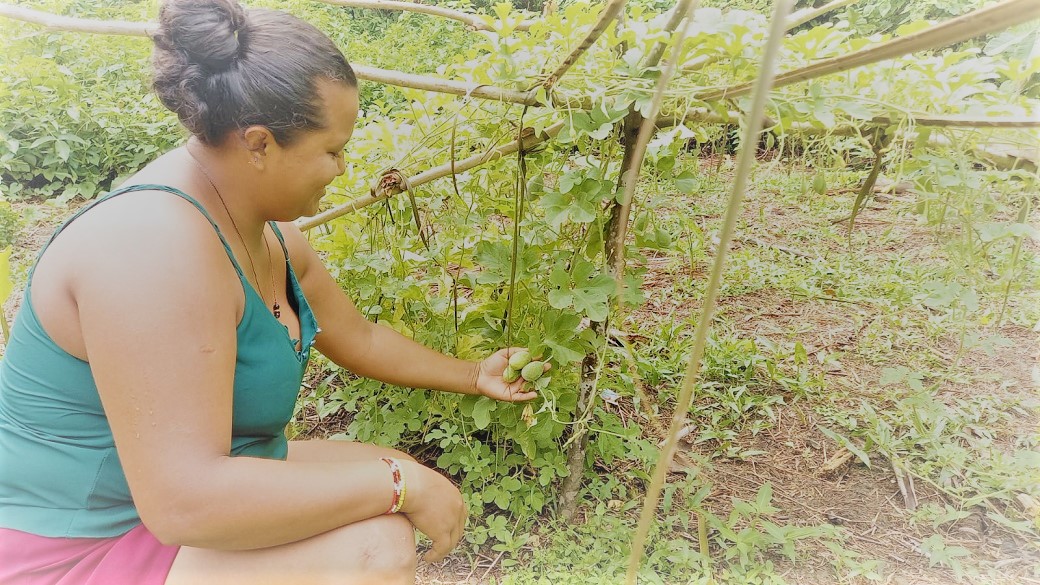Aviation industry’s offset plans distracts from urgent need to reduce emissions, say environmental NGOs

4th April, Brussels – As member countries of the International Civil Aviation Organisation (ICAO), the United Nations’ specialised aviation agency, gather in Utrecht to discuss ways to ‘offset’ emissions from the airline industry, 79 environmental NGOs from five continents are demanding that it adopts a serious plan to reduce emissions.
At its assembly in September 2016, the ICAO plans to adopt measures to achieve “carbon-neutral growth” from 2020. It proposes to achieve this through carbon offsetting via a global market based mechanism (GMBM). The statement says plans to offset a significant portion of the sector’s emissions through the GMBM are a significant distraction from the real measures that need to be taken to reduce aviation emissions.
Aviation is one of only two sectors worldwide with no targets to reduce emissions. Under business-as-usual, aviation is projected to increase emissions by between 300 and 700 per cent by 2050, despite only being used by 3-7 per cent of the world’s population.
The meeting in Utrecht on 4 and 5 April is part of ICAO’s Global Aviation Dialogue to consult members on the design of the GMBM.
Monika Lege from Robin Wood, a signatory of the statement, says: “The proposal to offset emissions to achieve Carbon Neutral Growth is unsuitable. German NGOs are instead proposing a global tax on CO2 equivalents that should be introduced globally.”
Since particular interest is being paid to land- and forest-based offsets, the statement emphasises that forests and land do not offset continued fossil fuel emissions. Hannah Mowat, land and climate campaigner from Fern, says: “ICAO’s own standards rule forests and land offsets out from the start, because they need to be permanent emissions reductions, which is impossible to prove for forests because the removals are reversible.”
Furthermore, ICAO’s standards preclude double-counting of offset credits, particularly difficult where forests are concerned as these are typically already included in national greenhouse gas balance sheets, through countries’ Intended Nationally Determined Contributions (INDCs). ICAO standards also require offsets to ‘do no harm’. Given the countless stories of social conflict due to people being denied access to their land and restricting their traditional use of forests, airlines must think twice about the likely damage to communities – and hence their reputation.
“While the aviation industry dithers, the pace of climate change quickens,” adds Isaac Rojas from Friends of the Earth International. “With only six years left until our cumulative emissions put the 1.5-degree temperature target out of reach, proposing to offset emissions is risible. There is real urgency to reduce emissions.”
The statement is available at: www.fern.org/ICAO
For more information, please contact:
Hannah Mowat, +32 485 025 432, hannah@fern.org
Monika Lege, Robin Wood, +49 40 380 892 12, monika.lege@robinwood.de
79 signatory organisations: Abibimman Foundation, Ghana , Accion Ecologica, African Youth International Development organisation, AMAF-BENIN, Aliança RECOs – Redes de Cooperação Comunitária Sem Fronteiras, Brazil, Amis de la Terre, France, Amigos da Terra, Brazil, Alternatives Durables pour le Développement, Cameroon , Attac Austria, Attac France, ARA, Germany, APED, Cameroon, Asia Pacific Forum on Women, Law and Development, Asia-Pacific , Asian Peoples’ Movement on Debt and Development, Philippine, Avenir Climatique, France, CADTM International, CarbonMarket Watch, Belgium, Carfree.com, Climate Express, Belgium, Bharat Jan Vigyan Jatha & India Climate Justic, Both ENDS Netherlands, Brot für die Welt, Germany, Bruno Manser Fonds, Switzerland, Ciel voilé, France, Censat Agua Viva- Amigos de la Tierra Colombia, Colectivo Ts’unel Bej, Mexico, Counter Balance, Czech Republic, COECOCEIBA, Costa Rica, Corporate Europe Observatory, Belgium, CNCD-11.11.11, Belgium, CRAD, Central African Republic, denkhausbremen, German, Digo Bikas Institute, Nepal, DKA Austria, Ecologistas en Acción, Spain, Environmental Rights Action/Friends of the Earth Nigeria, European Institute for Sustainable Transport, Germany, FAJOID, Cameroon , Fairwatch, Italy, Fern, Belgium, Finance & Trade Watch, Austria, Focus on the Global South Thailand, Philippines, India, Food & Water Europe, Belgium, Food & Water Watch, USA, Fórum Mudanças Climáticas e Justiça Social – Brasil, Forum Ökologie & Papier, Germany , Friends of the Earth Malaysia, Friends of the Earth Norway, Friends of the Earth, Scotland, Friends of the Earth International , Friends of the Earth, US, Fundación Solon, Bolivia, GAIA – Global Alliance for Incinerator Alternatives, UK, Global Forest Coalition, Grassroots Global Justice Alliance, US , Green Development Advocates, Congo Basin, Green Budget Germany, Health of Mother Earth Foundation (HOMEF), Nigeria, Indigenous Environmental Network, Institute for Policy Studies – Climate Policy Program, Leave it in the Ground Initiative, Movimento Mulheres pela P@Z!, Brazil, New York Climate Action Group, US, Pro REGENWALD, Germany, Re:Common, Italy, Rettet den Regenwald e.V., Germany, REDD:Monitor, Robin Wood, Germany, Salva la Selva, Spain, Society of akumals vital ecology, SONIA for a Just New World, Italy, TaCa, France, Terra, Italy, Third World Network, TierrActiva Peru, Timberwatch Coalition, South Africa, Werkgroep Toekomst Luchtvaart, Netherlands, Woodland League, Ireland, World Rainforest Movement











